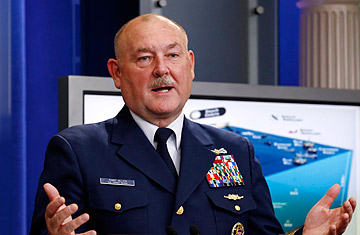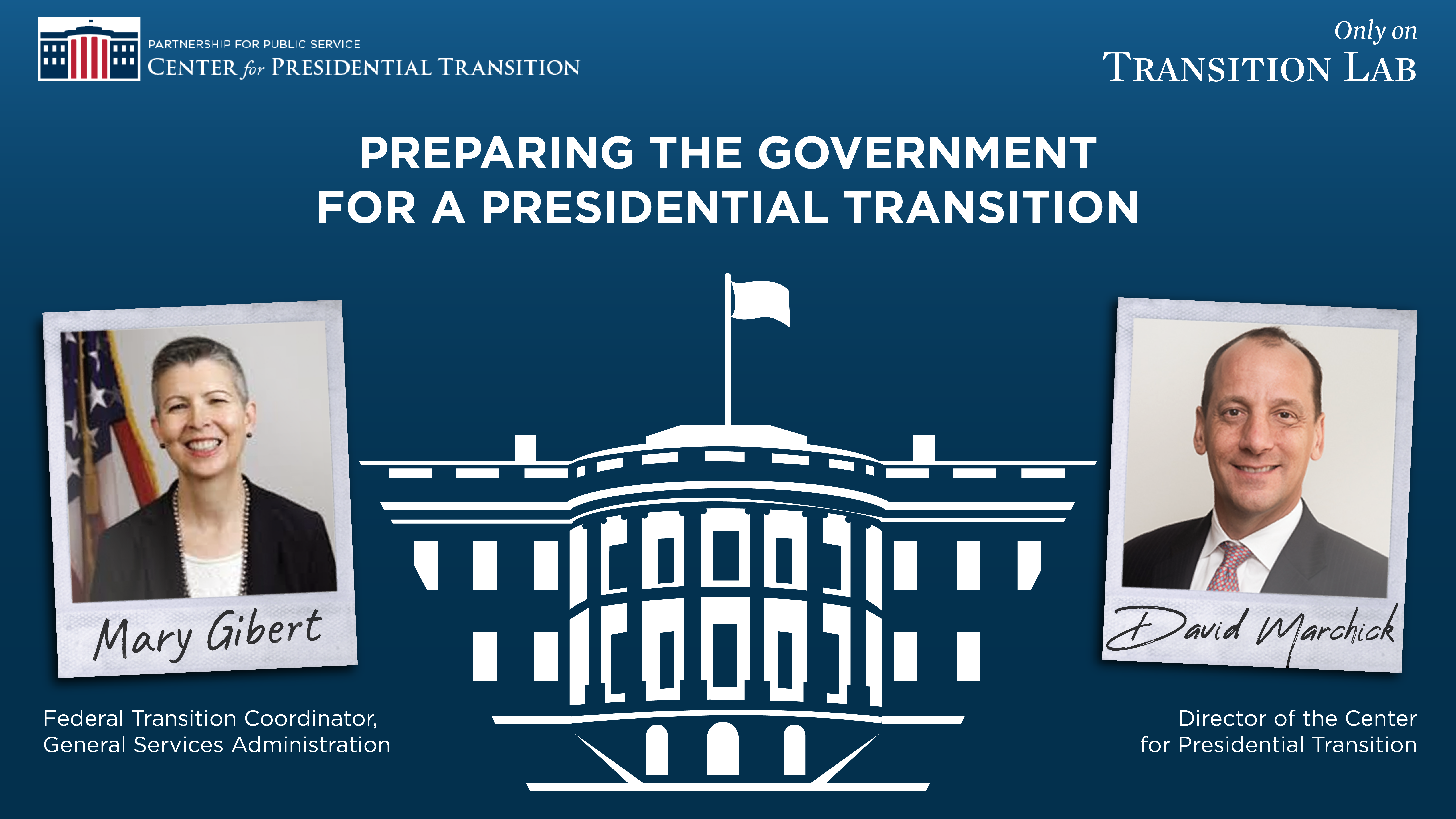Blog
March 27, 2020
The master of disaster planning, Thad Allen
Admiral Thad Allen talks about his experience leading the U.S. response to some of the most challenging modern crises. Named the “Master of Disaster” by TIME Magazine, Allen discusses the coronavirus pandemic and how to find calm in times of panic.
Listen, rate and subscribe on Apple Podcasts, Spotify, Stitcher and TuneIn.
[tunein id=”t140602960″]Read the highlights:
Dave: “Our work at the Partnership is focused on effectiveness in government and smooth political transitions. In your view, were our political leaders and our government ready for this crisis and where they prepare to implement the emergency response?”
The admiral noted the critical role that career federal employees play in preparing for any crisis, and shared insights on how the political polarization of the country effects disaster preparedness.
Admiral Allen: “The thing that has bothered me, and it’s bothered me for almost three decades now, is the more bifurcated and politicized we become as a nation, the more we’ve started to lose the dividing line between what’s a campaign and what’s governing. And when you try and run an operational response to a disaster or a crisis, and you confuse that with campaigning, you run the risk of failing of both.”
Dave: “One of the challenges that you dealt with, and that I think President Trump and others are dealing with today, is the different responsibilities. The federal government may lead the effort, but really the States have all the resources and the responsibility on the ground. How do you balance the roles of the federal government, the States and the cities? And how do you get everybody lined up? Clearly today, all the governors, mayors and others who are delivering direct responses to the people in the coronavirus crisis are on different pages than the president.”
Admiral Allen: “I’ve said many times that each one of these events, and especially the one we’re dealing with right now, becomes an exercise in applied civics and sometimes we end up load testing the Constitution and whatever the basic authorities mean. I always start with the 10th Amendment, which basically says that all powers not granted to the federal government are reserved to the states and specifically disaster response, police powers, health and sanitation and those types of things are a state responsibility. The question is how you move beyond that if the problem exceeds the ability of the state to respond to, and that’s done usually through a disaster or an emergency declaration that allows the federal government to come into assist.”
Admiral Allen gave thanks to the Partnership for enabling continuity of government and effectiveness among career federal employees.
Admiral Allen: “I have to give kudos to the Partnership for Public Service, what they’ve been doing for the past several transitions, a continuity of government that’s not continuity of policy and things that are subject to change by the will of the people, by electing people, but the continuity of government and the ability to maintain essential services has to be understood and respected by anybody that’s running for office. And it has to be depoliticized. It can’t be an immediate referendum on loyalty across two administrations.”



